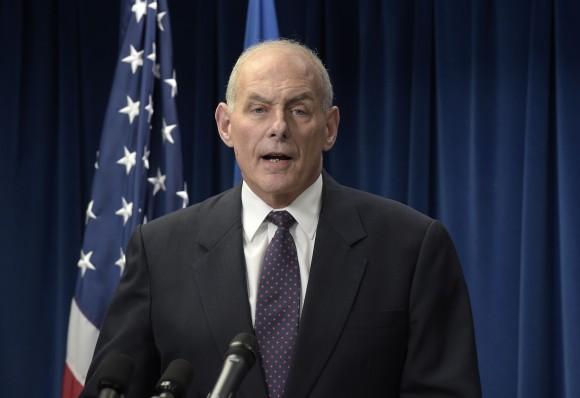A much quieter response greeted President Donald Trump’s narrower version of the temporary travel and refugee ban that stirred controversy and lawsuits six weeks ago. However, legal challenges are still expected.
Iraq was taken off the suspended list, as were green card holders and current visa holders, and there was no mention of religion.
A period of 10 days was given for the rollout, mitigating the chaos and protests surrounding the first executive order on Jan. 27.

Homeland Security Secretary John Kelly at the U.S. Customs and Border Protection office in Washington on March 6, 2017. AP Photo/Susan Walsh





